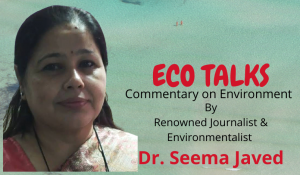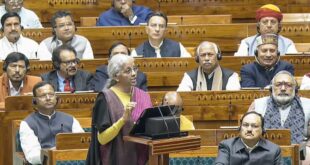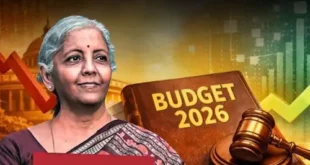 The annual Production Gap Report 2021 released by The UN Environment Programme and leading research institutes shows an assessment of the current fossil fuel production plans from governments. which reveals that current production levels are “dangerously out of sync” with the Paris Agreement temperature limits.
The annual Production Gap Report 2021 released by The UN Environment Programme and leading research institutes shows an assessment of the current fossil fuel production plans from governments. which reveals that current production levels are “dangerously out of sync” with the Paris Agreement temperature limits.
The 2021 Production Gap Report reveals that despite increased climate ambitions and net- zero commitments, governments still plan to produce more than double the amount of fossil fuels in 2030 than what would be consistent with limiting global warming to 1.5°C, and 45% more than consistent with limiting warming to 2°C.
Inger Andersen, Executive
On its current trajectory, the world is on track to produce 110% over the amount of fossil fuels than is consistent with maintaining 1.5°C of temperature warming, and 45% more than what is consistent with 2°C. The report has remained largely unchanged since it was launched two years ago, showing that despite the growing number of net zero and emission reduction pledges, governments are not rapidly shifting their fossil fuel production plans.

The report also includes country-specific data on India. Under the Aatma Nirbhar Bharat (Self-Reliant India) campaign, the government seeks to “unleash the power of coal” and become self-reliant by 2023–24, and commits to ”augment production through government companies”. The government articulated this as “a paradigm shift in the approach from being oriented to maximum revenue from coal to making maximum coal available in the market at the earliest”.
In 2020, several ministries jointly produced a vision and action plan for developing India’s resources. The plan outlines measures to expand coal production by nearly 60% from 2019 to 2024 (from 730 to 1,149 tonnes), including through the removal of barriers to land acquisition and building capacity for exploration. India also aims to increase total oil and gas production by over 40% in the same period through measures such as accelerated exploration licensing, faster monetization of discoveries, and gas marketing reforms.
Key findings-The report’s main findings include:
The world’s governments plan to produce around 110% more fossil fuels in 2030 than would be consistent with limiting warming to 1.5°C, and 45% more than consistent with 2°C. The size of the production gap has remained largely unchanged compared to prior assessments.
Governments’ production plans and projections would lead to about 240% more coal, 57% more oil, and 71% more gas in 2030 than would be consistent with limiting global warming to 1.5°C.
Global gas production is projected to increase the most between 2020 and 2040 based on governments’ plans. This continued, long-term global expansion in gas production is inconsistent with the Paris Agreement’s temperature limits.
Countries have directed over USD 300 billion in new funds towards fossil fuel activities since the beginning of the COVID-19 pandemic — more than they have towards clean energy.
In contrast, international public finance for production of fossil fuels from G20 countries and major multilateral development banks (MDBs) has significantly decreased in recent years; one-third of MDBs and G20 development finance institutions (DFIs) by asset size have adopted policies that exclude fossil fuel production activities from future finance.
Lucile Dufour, Senior Policy Advisor, International Institute for Sustainable Development (IISD) said that : “Early efforts from development finance institutions to cut international support for fossil fuel production are encouraging, but these changes need to be followed by concrete and ambitious fossil fuel exclusion policies to limit global warming to 1.5°C.”
The report, first launched in 2019, measures the gap between governments’ planned production of coal, oil, and gas and the global production levels consistent with meeting the Paris Agreement temperature limits.
Over the next two decades, governments are collectively projecting an increase in global oil and gas production, and only a modest decrease in coal production. Taken together, their plans and projections see global, total fossil fuel production increasing out to at least 2040, creating an ever-widening production gap.
Måns Nilsson, executive director at SEI says that: “Fossil-fuel-producing nations must recognize their role and responsibility in closing the production gap and steering us towards a safe climate future. As countries
 Jubilee Post News & Views
Jubilee Post News & Views





